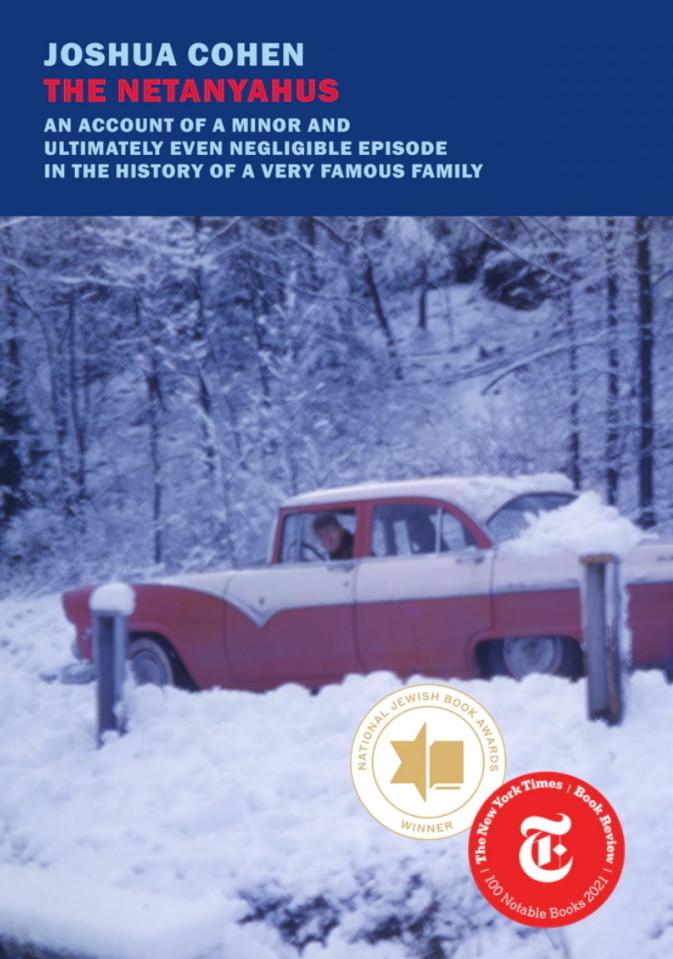On the afternoon of May 9, local time, the 106th Pulitzer Prize announced the list of winners in 2022 through online live broadcast.
In the literary and artistic category, writer Joshua Cohen won the award for best novel for "The Netanyahus" (The Netanyahus). New York Times reporter Andrea Elliott won the Nonfiction Award for "Invisible Child: Poverty, Survival and Hope in an American City."
Below is the full list of winners and an introduction.
Fiction
Winner: The Netanyahus by Joshua Cohen
In Cohen's book, Benion Netanyahu, a scholar and father of Israeli Prime Minister Benion Netanyahu, came to a fictional New York university in the late 1950s to interview for a job. The story of the book is narrated by Ruben Blum, a faculty member who was asked to examine whether Netanyahu was a good fit for the job. The novel explores themes of Jewish identity and diaspora, with Netanyahu's fatalistic view of Jewish history colliding with that of the assimilated American Jewish professor Bloom. According to the jury, it is a "pungent, linguistically fluent historical novel about the ambiguity of the Jewish-American experience." The novel also won the 2021 National Jewish Book Award. The New York Times book review section called the book "a generational campus novel, an uncompromising academic lecture, a meticulous reflection on Jewish identity, a detailed reflection on Jewish-American identity, a zionist debate, a history lesson." It's an irritating, frustrating, pretentious work, but at the same time a fascinating, enjoyable, hilarious, exciting work, the best and most apt novel I've ever read. ”

The Netanyahu Family
History class
Winner: Covered With Night: A Story of Murder and Indigenous Justice in Early America by Nicole Eustace
The book, which also made a finalist for the National Book Award, shows the lasting aftermath of an Indigenous hunter in Pennsylvania who was killed by two white merchants in 1722. Eustace, a professor at New York University, explores how the immediate consequences of the case sparked a heated debate about justice and contrasted the indigenous view and its focus on reconciliation and forgiveness with that of white colonists, who tended to favor revenge. Ultimately, this event, and subsequent cross-cultural negotiations between Indigenous communities and white colonists, paved the way for a treaty that is still recognized today.
Cuba: An American History, by Ada Ferrer
This comprehensive description of Cuba also won the History Category Award. It spans 500 years — from before Christopher Columbus arrived to after Fidel Castro's death — and details its history of occupation, revolution, and more. Ferrer writes that the book is not only a history of Cuba, but also a history of Cuba's relations with the United States, a history of relations between the two countries that are sometimes intimate, sometimes intense, and always unbalanced. Ferrer spent decades studying Cuba and drawing on his own family's history, allowing readers to "see a refraction of their own country through the eyes of others."
Biographical class
Winning work: Chasing Me to My Grave: An Artist's Memoir of the Jim Crow South, by Winfred Rembert, Erin M. Erin I. Kelly
Artist Winfred Lambert did not begin to paint seriously until he was in his 50s. In his memoirs, Lambert blends his life story with his artwork— brightly colored paintings carved from leather— to tell scenes from his life in the depths of the South during the era of Jim Crowfa. Lambert described how he survived a near-lynching in Georgia in the 1960s, when he was chased by a group of white thugs after a civil rights demonstration turned chaotic. He was later imprisoned for stealing a car and spent 7 years in prison, forced to work in shackles. Lambert died in the spring of 2021, shortly before the publication of this memoir, which he had a relationship with Erin M. Thompson, a philosophy professor at Tufts University. I. Kelly co-published. In the introduction, he describes how he has wanted to tell his life story for decades but felt no audience: "I worry about whether people will believe me or care about me. ”
Poetry
Winner: Frank: Sonnets by Diane Seuss
Seuss said it was her fifth collection of poems, a memoir of sonnets about death, birth, loss and addiction. "There is no death in poetry," a poem begins. "There is no suffocating sound in the poem, no smell of blood. I can describe sounds, smells, but the description is actually a hidden place. There is nothing noble about depiction. Is there nobility in poetry? Let's hope not. Nobility is another place to hide. The book also won the National Association of Book Critics Award and the American PEN Award.
General non-fiction class
Winner: Invisible Child: Poverty, Survival and Hope in an American City, by Andrea M. Andrea Elliott
In The Invisible Child, Elliott expands on her 2013 series of articles for The New York Times about the homeless New York schoolgirl Dasani and her family. The book provides an intimate account of the family, but it also gives a profound account of poverty and addiction, as well as the city and the country's repeated failures to address them. On a podcast for the New York Times Book Review, Elliott said that Dasani became the main focus of the book in part because "she was a person who, at a very young age, was able to express her experience in a touching and profound way." This is a rare trait even in adults. Matthew Desmond commented on the book: "The result of this fearless and tenacious report is a rare and powerful work whose story will remain in your heart for a long time after you have read it." ”
The Invisible Child: Poverty, Survival, and Hope in America's Cities